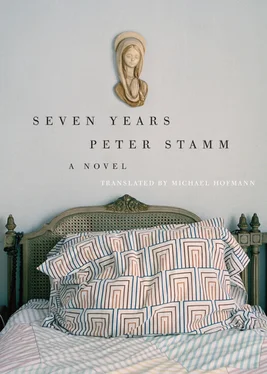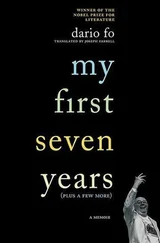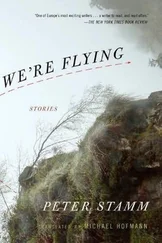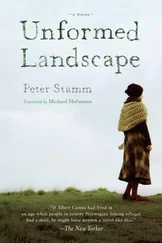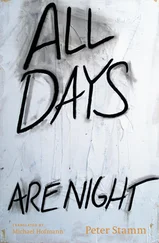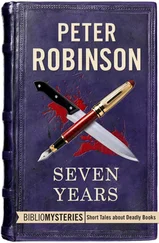I had read up a little on Rudolf Steiner by now, and asked the headmaster a few critical questions, to which he gave evasive answers. I had the feeling he himself kept a healthy distance from the more abstruse ideas of the master. In the end we decided to send Sophie there on a trial basis.
Work was going well. We specialized in school buildings and social housing, and had plenty to do. Sonia and I were a good team in every respect. The division of labor between us was even more pronounced now, it was years since I had last designed anything. Sometimes I fished out my old papers, projects I had worked on in college, competition entries from the time we started the business. Most of it looked alarmingly banal to me. But in the drawings I still sensed something of my mood in those years, my determination to go new ways. Nothing was sacred to me then, and nothing seemed impossible. For all the limitations of the work, there was a kind of truthfulness in it, a freshness that our current designs no longer had. I could understand architects like Boullée, who eventually turned into draftsmen pure and simple, without ever craving to see one of their designs realized. It was only in the fictive world of plans and sketches that you were free to do everything the way you wanted. I started drawing in the evenings, usually oversize interiors, empty halls with dramatic light effects, sacral buildings, labyrinths, and subterranean complexes. I didn’t show Sonia my drawings, she would certainly have thought me mad, and I didn’t take them completely seriously either.
I was content. I liked driving out to building sites and talking with planners and craftsmen, and watching our plans taking shape. Sometimes Sonia said she would like bolder employers, but I think broadly speaking she was content too. The constrained means and tightly drawn parameters seemed to stimulate her creativity. I don’t think she’d have been any happier as an employee of some star architect. A couple of our interns had made the leap overseas. Heike, a young and very gifted woman from North Germany, went and joined Norman Foster in London after getting her degree. When she came back to see us, she talked about nothing but work. She lived on her own in a tiny place, had no boyfriend and no life outside the office. But while Heike talked, Sonia’s eyes began to shine, and she asked lots of questions, and wanted to know everything in exact detail. It sounds like a nun’s life to me, I said. Heike laughed. Yes, in a way that was true. You had to have a sense of vocation.
By now we had more than twenty people working for us. We had moved into new premises in a disused factory we had adapted to our needs. At the opening, I gave Sonia the Le Corbusier quote in a frame: EVERYTHING IS DIFFERENT. EVERYTHING IS NEW. EVERYTHING IS BEAUTIFUL. She hung it over her desk and said, everything is the way it’s supposed to be.
The crisis hit us later than the other offices. It began gradually. We were still drowning in work, but no new assignments were coming in. At first, it felt like a welcome respite. Sonia said now she would finally get around to thinking and reading and entering competitions again. But the bills and people’s salaries needed to be paid. I tried to the best of my ability to keep Sonia burden-free, but even so she saw how things stood in the office. We were forced to let some people go. I asked Sonia to do the firing, they were her employees, and she was more popular than me. The first desks were cleared, part of the office was sublet, and a depressed feeling settled in. For the first time, I became aware of a sort of whispering campaign. My secretary told me what was going on. People thought Sonia and I were paying ourselves too much, and treating ourselves to a luxurious standard of living. Is that what you think? Of course not, she said, I know how hard you work. We called a general meeting and put the figures on the table. After that the whispering died down, but the atmosphere didn’t improve.
The situation affected our health. Sonia got a skin rash that tormented her for several weeks, and my back started to bother me again, after years of quiet. I took to drawing late into the night. In the morning I had trouble getting up, and after a day in the office I felt tired and exhausted.
In early June the weather got very hot. I spent the whole day on a site, and the evening in a beer garden with a client. I sat on a trestle bench, and my back hurt. The beer garden was full of young and attractive people in light summer clothes who were probably going on to other restaurants and bars, or the movies or the theater. I hadn’t been out anywhere for ages, and I suddenly had the feeling I was missing out on something. I yearned for the simplicities of student life. Instead of sitting with a beautiful woman, I was with the representative of a local education bureau, discussing fire regulations and emergency exits. I was bored, and drank too much too quickly. By the time I finally finished with the client, I was drunk. I left the car in the city and took the subway home. Sonia was still up, in the living room. She put her book down and started to talk about a problem Sophie had had with one of her classmates. I said I was tired, and she complained that everything was always dumped on her. I was too exhausted to argue. Can we talk about it over the weekend, I said, and went to bed.
In the middle of the night I awoke with a terrible toothache. I looked at the alarm clock, it was just past three a.m. I took a couple of aspirins, sat down in front of the TV in the living room, and watched a rerun of a talk show that had people laying into each other in the most primitive way. I don’t remember the subject, just the ugly, contorted faces, and I thought what a thin veneer civilization is, and how easily it cracks when pain or hatred or lust take over in individuals. I switched off the TV in disgust and got a glass of water from the kitchen. The aspirins had absolutely no effect, but the cold water soothed the pain at least temporarily. I sat on the sofa, drinking a sip at a time and waiting for it to get light outside.
My dentist said I needed a root canal, and he would have to put in a post and crown. He extracted the root and created a temporary filling. He would take another look in a month’s time, and see how things were then. He prescribed a stronger analgesic, and the pain went away, but the provisional tooth was a permanent irritant. I kept probing it with my tongue, it felt quite enormous. The thought of having lost a tooth depressed me; however trivial, it felt like a memento mori to me.
On the way in to the office, I called my secretary. There were problems on a building site, the designer of the facade had ordered the wrong beams and was now claiming it was our fault, and the structure was too weak. I was short with her, and told her to call the structural engineer. Couldn’t they do anything without me, what was I paying twenty people for, if in the end everything came to me anyway. Fourteen, she said offendedly, and hung up.
My mood didn’t improve in the following days. I had a continual, ill-defined sense of being under threat that never left me, even when I drank wine after work to calm down. Sonia was working on a competition entry, she had two days in which to complete the plans, and she stayed in her office, which wasn’t unusual for her. But this time I felt abandoned and crushed. Sophie must have felt the lousy atmosphere. She kept asking for her mother, and reacted badly to everything I said. I tried to reason with her, which only made matters worse. I lost my temper, and she started screaming and rolling around on the floor like a little child. I threatened her with all kinds of punishments, but was too feeble to carry any of them out. At times I felt close to striking her. No sooner was she in bed than I felt rotten, and felt ashamed of my failure.
Читать дальше
